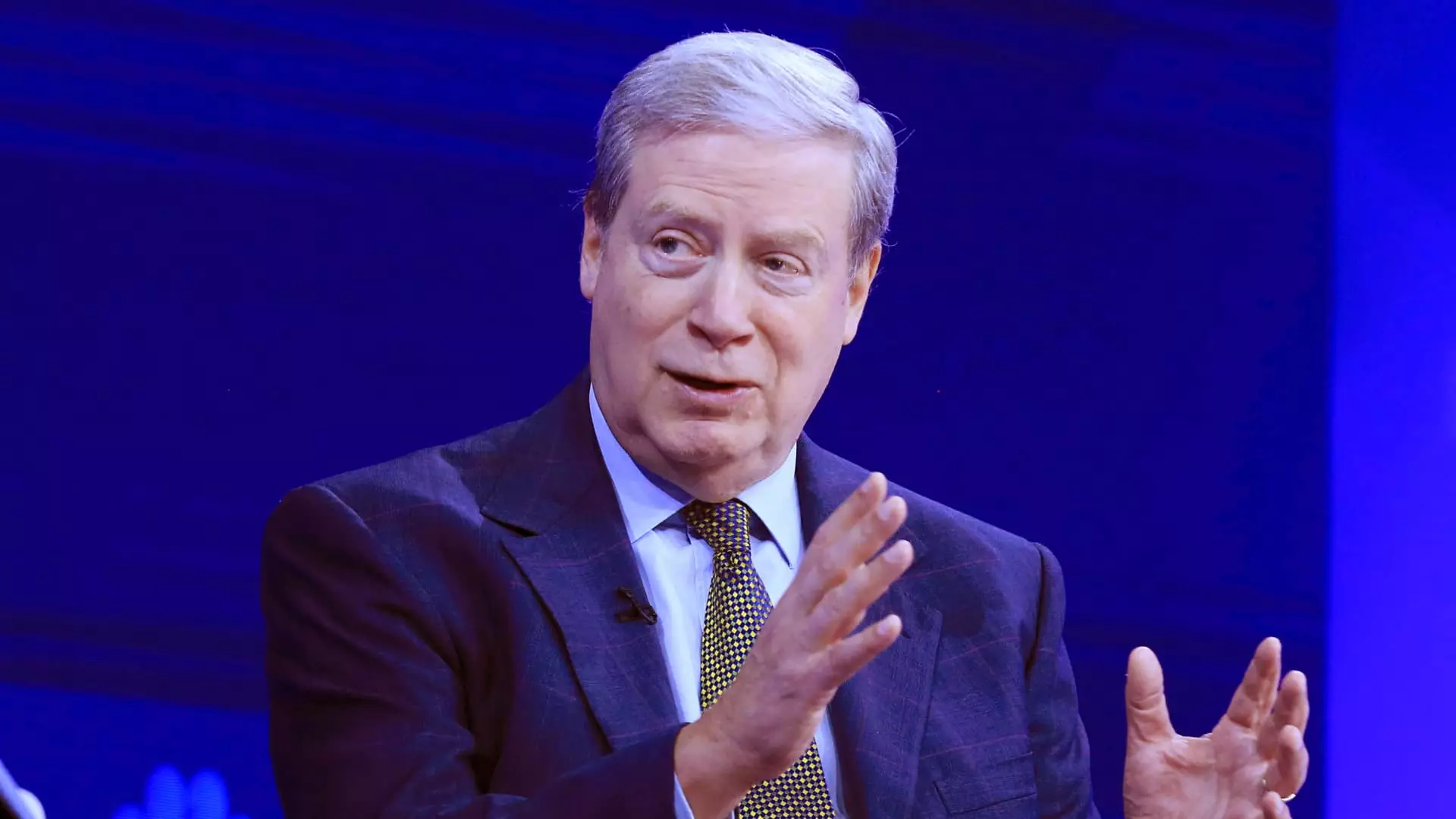Market Shifts: Analyzing the Impact of Political Changes on Investor Sentiment

The financial landscape is perpetually in flux, shaped significantly by political developments and ensuing investor attitudes. Recently, billionaire investor Stanley Druckenmiller articulated a sense of resurgence in market optimism, referencing the impact of Donald Trump’s re-election. This anticipated shift appears to invigorate business leaders who, according to Druckenmiller, are oscillating between relief and exuberance. Given the rich historical context of his 49 years in the investment sphere, Druckenmiller’s observations invite a deeper look at how political climates can undulate market sentiments.
Druckenmiller’s engagement with CEOs offers pertinent insights. It reveals that executives are feeling liberated from what he terms an ‘anti-business administration’. This narrative of optimism surrounding Trump’s leadership reflects a broader assumption that pro-business policies could catalyze economic growth. It’s essential to scrutinize the implications of this newfound ‘animal spirit’—the tendency of investors to act on their instincts rather than solely on quantitative metrics. Such behavior can lead to inflated markets, potentially unanchored from fundamental economic conditions.
While enthusiasm in the markets appears evident, Druckenmiller’s cautious stance regarding stock valuations is noteworthy. His predictions indicate a complex interaction between a robust economic outlook and rising bond yields. Investors typically perceive high bond yields as indicative of economic strength, yet too rapid an increase could potentially stymie equity markets. Druckenmiller’s short position against Treasurys underscores a critical belief that escalating yields might outpace the economic optimism, leading to market volatility.
Druckenmiller explains, “It’s complicated.” This simplicity of his assertion belies the intricate reality that investors must navigate. Rising bond yields may reflect confidence in economic growth, but they also pose significant risks to equities, creating a conundrum for market participants. For a seasoned investor like Druckenmiller, the delicate balance between strong economic activity and expected inflation reflects a market teetering at the brink of speculation and prudence.
The broader market’s buoyancy cannot overshadow Druckenmiller’s focus on individual stocks, especially in sectors propelled by technological advancements like artificial intelligence. His perspective emphasizes the crucial role AI can play in modifying operational costs and enhancing productivity—dynamics likely to drive valuations higher. However, the absence of specific stock picks following his divestiture from high-profile tech stocks such as Nvidia and Microsoft raises questions. This decision may indicate a strategic reevaluation of the tech landscape or a desire to explore less conspicuous opportunities.
While risk assets, including cryptocurrencies like bitcoin, have soared in the wake of Trump’s tax proposals and deregulation agenda, it is the innate characteristics of sectors and companies that might determine enduring success in an evolving market environment. Investors must recognize that bullish sentiment is often transient; with tech stocks representing not just growth but also a myriad of risks tied to market competition and regulatory scrutiny.
Addressing potential economic disruptions from tariffs presents another layer of complexity. Druckenmiller’s interpretation of tariffs as a form of consumption tax, primarily impacting foreign entities, suggests he views them as a mechanism to shore up governmental revenues amidst fiscal challenges. This reasoning presents an intriguing argument against conventional wisdom, which associates tariffs with inflationary pressures and global economic instability.
Nonetheless, the specter of retaliatory actions from trade partners poses substantial risks. While he believes that effective tariff levels could mitigate fiscal woes without igniting excessive inflation, investors must remain vigilant to geopolitical dynamics that can change swiftly and disrupt markets unexpectedly. Comprehensive risk assessments will be essential for savvy investors navigating this turbulent terrain.
The current climate enveloping financial markets is significantly influenced by political events and investor sentiment. The observations made by Stanley Druckenmiller shine a light on the interconnections between optimism, caution, and potential risks. While markets appear to embrace a bullish outlook influenced by Trump’s policies, the simultaneous presence of rising bond yields, sector-specific impacts, and tariff considerations creates a complex landscape that demands nuanced understanding. For investors, the ability to dissect these multifaceted elements will be essential in navigating what promises to be an increasingly volatile market terrain.





